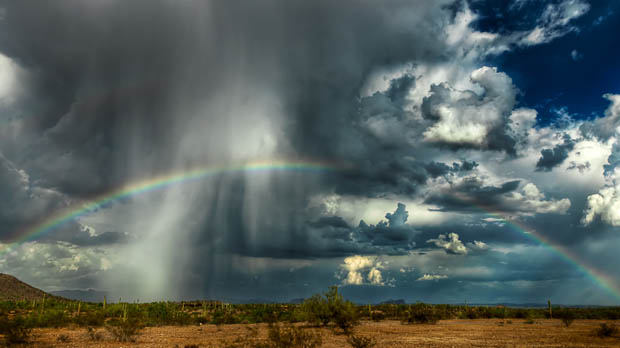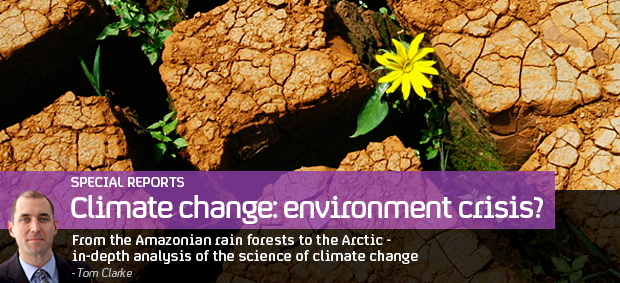World “will get hotter and wetter” – IPCC
A summary of a report by the UN’s IPCC says there is some evidence extreme weather linked to global warming will increase, but there is strong evidence of hotter temperatures and more rain worldwide

The full special report by the Intercontinental Panel on Climate Change (IPCC) on the link between extreme weather and climate change involved around 100 scientists over two years, and will be available in February 2012.
But a “summary for policy-makers”, which has to be agreed in full by every nation that chooses to be involved, said the IPCC is “highly confident” that increasing temperatures could lead to more intense and frequent extreme weather events.
“A changing climate leads to changes in the frequency, intensity, spatial extent, duration, and timing of extreme weather and climate events, and can result in unprecedented extreme weather and climate events.”
However it added: “Many extreme weather and climate events continue to be the result of natural climate variability.”
Changes in the intensity of floods and the length droughts, are being observed in some regions, but more research needs to be done, the summary went on to say.
Read more: The full summary from the IPCC.
Challenges ahead
The summary of this report certainly suggests that there will be many challenges ahead in dealing with a changing climate and the potential effects it may have on extreme weather, writes Channel 4 News weather presenter Liam Dutton.
As an example, the suggestion that the wind speed of tropical cyclones could be higher in a future climate is something that would have a huge impact.
Consider Hurricane Irene, a category one storm that struck the eastern seaboard of the USA during late August. What if such a storm took a similar path in a future climate, but instead as a category two storm with even stronger winds? How would the level of impact differ?
The National Hurricane Center summarises a category one storm as having "very dangerous winds that will produce some damage". Yet a category two storm is described as having "extremely dangerous winds that will cause extensive damage" - a significantly greater impact.
However, it's important to remember that it's not just the climate that is changing over time. Population is increasing as well and this in itself puts a greater number of people in harm’s way, especially in parts of the world where extreme weather events are more common.
But the IPCC said it was “virtually certain” hot days and heavier rain will become more intense and occur more often in the future all over the world
“Heavy precipitation will occur more often, and the wind speed of tropical cyclones will increase while their number will likely remain constant or decrease,” said Vicente Barros of the IPCC.
“Nevertheless, there are many options for decreasing risk. Some of these have been implemented, but many have not. The best options can provide benefits across a wide range of possible levels of climate change,” he added.
The scientists underlined that assessing the data during extreme weather events is difficult because of the rarity of the events themselves.
-
Latest news
-
‘Government responsiveness should be improved’ says infected blood inquiry chair4m

-
Infected Blood scandal: How UK failed on a global scale4m

-
‘There’s a strong evidential basis’ for ICC to grant arrest warrants for Netanyahu, says criminal law expert4m

-
International Criminal Court prosecutor seeks arrest warrants for Israel PM and Hamas leaders3m

-
‘Highly unlikely there was foul play’ in Iran president helicopter crash, says Tehran professor5m

-





